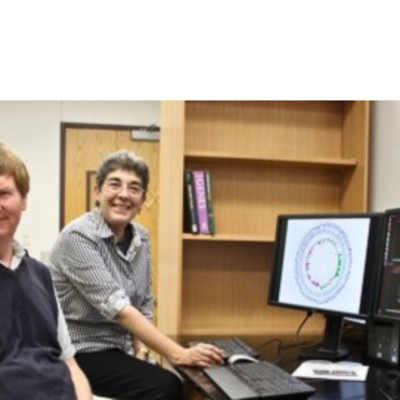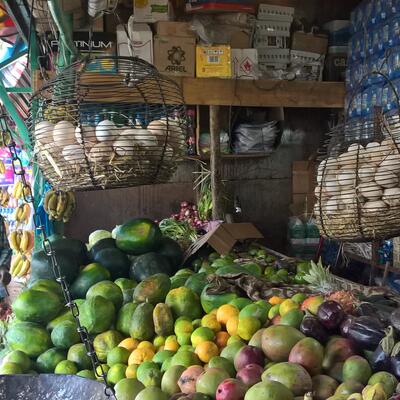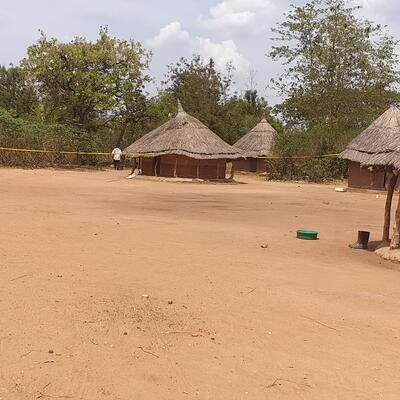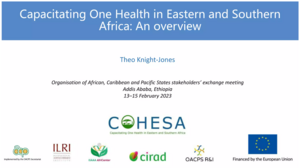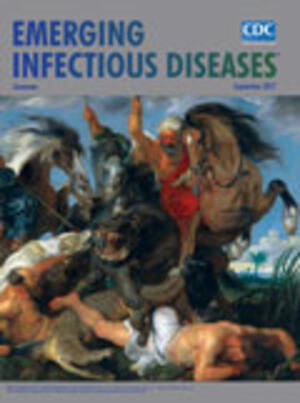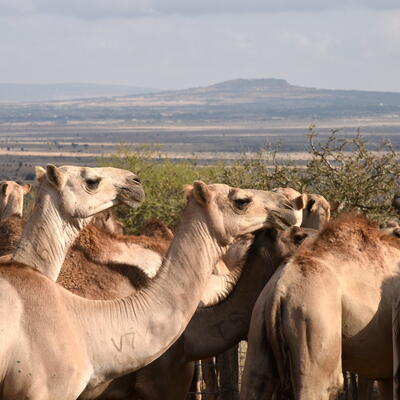
Where nutrients and protein sourced from livestock remain vital—Crawford Fund
Standing Child (Stehendes Kind) by Erich Heckel, 1910.
‘Coinciding with the launch of the EAT-Lancet “Healthy Diets from Sustainable Food Systems” report, Dr Colin Chartres, the [Crawford] Fund’s CEO, . . . discusses the importance of ‘smart foods’ and smart people for a healthy population and planet.
‘In late January the Eat-Lancet Foundation released its Healthy Diets from Sustainable Food Systems report. Its headline message is:
“Transformation to healthy diets by 2050 will require substantial dietary shifts. Global consumption of fruits, vegetables, nuts and legumes will have to double, and consumption of foods such as red meat and sugar will have to be reduced by more than 50%. A diet rich in plant-based foods and with fewer animal source foods confers both improved health and environmental benefits.”
‘Whilst this message is not exactly new—the late Professor Tony McMichael from ANU [Australian National University] had been a long-time advocate of the environmental benefits of healthier dietary habits for over four decade—in my mind the growing effects on individuals’ health from obesity related diseases perhaps make the current arguments even more compelling given the fact that there are now about 2 billion over-nourished individuals worldwide, not just in the developed countries. . . .
‘So just what is the EAT-Lancet Commission’s Healthy diet? To improve the health of people and the planet, they have developed a “planetary health diet” which they say is globally applicable—irrespective of your geographic, economic or cultural background—and locally adaptable. . . .
‘If adopted by 2050 it would mean a doubling of the intake of cereals, fruits, legumes and nuts and a 50% reduction in global consumption of less healthy foods such as added sugars and red meat, particularly in western countries. The Eat-Lancet Commission argues that by adoption of a healthy diet, combined with halving food waste globally and more sustainable production practices we can reduce CO2 emissions by half to almost 100%, and reduce pressure from agriculture on land, water resources and biodiversity.
To a considerable extent the report ignores the significant role that income and protein from livestock plays for hundreds of millions of smallholder farmers.
In many developing countries consumption of animal protein is already very limited due to cost and many women suffer from mild or moderate anaemia, and stunting in children is still common.
Red meat, eggs and dairy products are a vital source of iron and other critical nutrients in their diets.
The diets of the bottom billion of global society clearly need enhancing nutritionally and diversifying, and protein sourced from livestock is vital to them.
‘. . . Having read the EAT-Lancet Commission report and attended the ICRISAT workshop set me thinking about the daunting challenges of both saving the planet and preventing obesity related diseases. Whilst changing human behaviour is difficult, it can be done based on sound continuing education from an early age. In comparison, researching the improvements required in specific crops, sustainable intensification and developing value chains is somewhat easier, but does require ongoing public and private funding.
‘Recent cutbacks to the CG[IAR] system and public sector, agricultural R&D across the world are an indication that policy makers have not yet grasped the seriousness of the food and associated planetary challenges ahead. These challenges to the planet are daunting. The challenges to public sector health budgets are only just beginning to be understood.
‘We need to foster a new generation willing to take these on. Consequently, one area that the Crawford Fund will be focusing even more on in the next couple of years is demonstrating to the next generation that not only are careers in the agriculture- food continuum exciting, but that the work is vital to saving the planet!
‘So in answer to my question in the article title—smart foods are vital, but smart people even more so, if we are going to stay healthy and save the planet!’
Read the whole opinion piece by Colin Chartres: How smart are ‘smart foods’?, Crawford Fund News, Jan 2019.
Related posts on the ILRI blogs
Climate change policy must distinguish (long-lived) carbon dioxide from (short-lived) methane–Oxford study, 29 Jan 2019
FAO sets the record straight–86% of livestock feed is inedible by humans, 28 Jan 2018
FAO sets the record straight on flawed livestock emission comparisons–and the livestock livelihoods on the line, 27 Jan 2019.
IFPRI’s Shenggen Fan on the ‘differentiated approach’ needed to navigate today’s food systems, 26 Jan 2019.
With huge variations in meat consumption, we’re ‘all in this existential crisis together’,—Vox, 25 Jan 2019.
Should we eat red meat? Depends on who’s eating—New York Times, 22 Jan 2019.
African livestock: A terrible thing to waste,22 Dec 2018.
A move away from ‘grain fundamentalism’ to higher quality milk, meat and egg calories to fight malnutrition,15 Nov 2018.
Yes, eating meat affects the environment, but cows are not killing the climate, 30 Oct 2018.
Greenhouse gas emissions from dung patches in developing countries are ‘likely highly overestimated’—New report, 3 Oct 2018.
IFPRI, ILRI leaders: Sustainable small-scale livestock farming is essential to meeting the 21st-century’s protein needs, 26 Sep 2018.
‘High-yield’ farming costs the environment less than previously thought—and could help spare habitats, 20 Sep 2018.
FAO on the common but flawed comparisons of greenhouse gas emissions from livestock and transport, 19 Sep 2018.
Squaring the meat vs veganism circle, 6 Sep 2019.
One-size-fits-all ‘livestock less’ measures will not serve some one billion smallholder livestock farmers and herders, 2 Aug 2018.
Why livestock belong on the table—whether we eat meat or not, 26 Jun 2018.
Is promoting vegetarianism for all the world’s people a form of colonialism? just Euro-centric?, 26 Jun 2018.
A better way for vegans, vegetarians, meat eaters and livestock herders alike—By ecologist Ian Scoones, 22 Jun 2018.
Livestock-enhanced diets in the first 1,000 days of life: Pathways to better futures in low-income countries, 19 Jun 2018.
It’s not enough to go vegetarian to fight climate change, 11 Jun 2018.
Checking the facts behind the ‘livestock facts’ we think we know, 6 Jun 2018.
Avoiding meat and dairy is ‘the single biggest way’ to harm poor livestock herders, 5 Jun 2018.
New studies provide the first accurate estimates of greenhouse gas emissions from East African livestock, 3 Jun 2018.
Shirley Tarawali on convergence in consumption of milk, meat, eggs at the Global Forum for Food and Agriculture, 26 Mar 2018.
Mobile pastoralism—A 10,000-year-old practice still robust, if threatened, in the Mediterranean today, 19 Mar 2018.
Cleaning up assessments of livestock-environment systems in developing countries with CLEANED, 16 Mar 2018.
Lora Iannotti on livestock and animal-source foods at Berlin’s Global Forum for Food and Agriculture, 6 Mar 2018.
BMZ’s Stefan Schmitz on sustainable solutions for the livestock sector, 5 Mar 2018
Beef cattle grazing on American rangelands—not feedlots—could be net carbon sink, 27 Feb 2018.
Cereal straws and stovers for sustainable livestock futures: When crop biomass becomes livestock gold, 27 Feb 2018.
Towards a sustainable, responsible and efficient livestock sector—Jimmy Smith at the Berlin Global Forum for Food and Agriculture, 22 Feb 2018
’If you care about agriculture, you care about livestock’—Bill Gates, 30 Jan 2018.
Jimmy Smith speaks in Australia on the pursuit of a ‘low-emissions cow’ and other livestock matters, 3 Jan 2018.
Livestock in developing countries—Misperceptions, facts and consequences, 5 Oct 2017.









